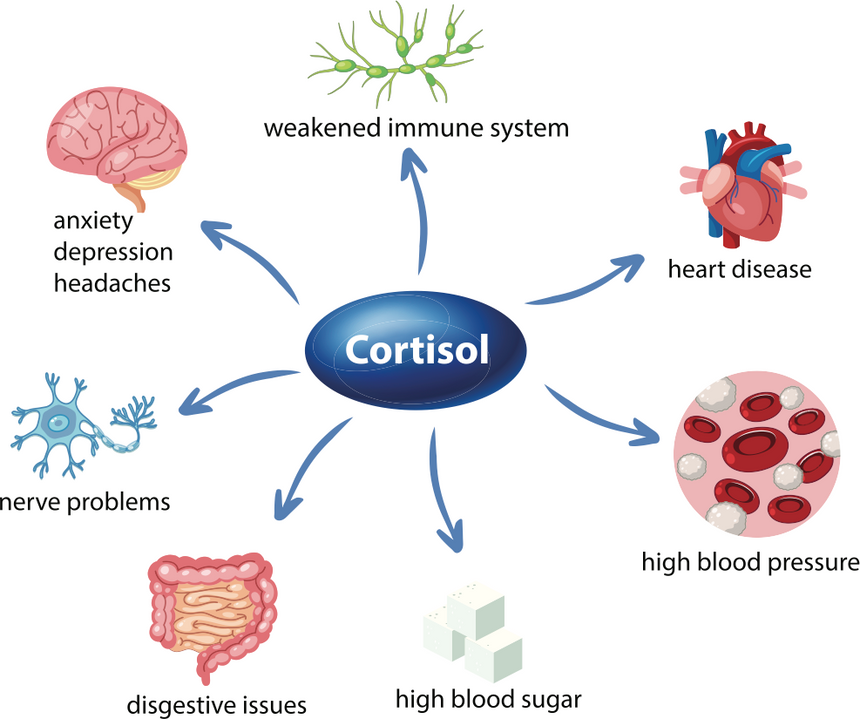What Is Cortisol?
Cortisol is a steroid (a fancy name for it’s chemical makeup) hormone produced in the adrenal glands. Other steroid hormones are produced in the ovaries and the testes. Cortisol is particularly interesting because it plays so many roles in the body.
First, it’s important to get across that cortisol plays a big role in your body. It has a really bad reputation, especially to people interested in health and wellness, but the reality is your body produces cortisol for a variety of functions, and not all of them are bad.
Among other things, cortisol can control blood-sugar levels, act as an anti-inflammatory, can influence salt and water balance, sleep, and even plays a part in forming memories.
Cortisol and Stress
Cortisol is most famous, however, for it’s role in stress response. When your body feels fear or stress, cortisol is released by the adrenal glands. This stress, however, can be both good and bad. Bad stress usually turns on the body’s “fight or flight” response, while good stress can make you feel mobilized and ready for action.
Both of these stresses need to be released in some way. If there is no release for this anxiety, a build-up of cortisol can occur. Too much cortisol over long periods of time can have a negative impact on your body.
In our contemporary world of computers and desks, it can be difficult to “release” the stress we feel throughout the day. Many of us work tough jobs, get stressed out during the commute, and then can come home to loud kiddos who need attention. When you’re under constant stress, cortisol levels don’t lower as they would normally.
Too much cortisol can cause:
- Weight gain
- Acne
- High blood pressure
- Headache
- Irritability
- Lack of focus
- Fatigue
- Sleeplessness
Some of these side effects can be stressful on their own, causing a vicious cycle of continual stress and elevated cortisol levels.
Combating Cortisol
It’s important to remember everyone will have elevated cortisol levels now and again. You can’t go through life without feeling anxious or stressed at some point—it’s just a natural reaction to the world around us.
However, keeping your cortisol levels from being continually high is a good thing. Here are some ways to lower your cortisol levels:
- Exercise regularly
- Exercise is the best way to alleviate stress and anxiety. Much of our cortisol can be released through physical activity. Exercise is biologically necessary for the body to function properly.
- Sleep
- Sleep deprivation can cause your cortisol levels to rise beyond the normal amount. Sleeping the recommended 7-9 hours per night will not only help your body and brain reset for the next day, it can reset your fight or flight system so it functions properly.
- Do relaxing activities
- This may seem simple, but spending just 30 minutes doing something relaxing can be hugely beneficial to lowering cortisol levels. Take a bath, read a book, meditate, whatever you need!
- Laugh
- They say laughter is the best medicine. It’s one adage we agree with! Spending time with people you enjoy doing activities you enjoy can keep your cortisol levels normal.
- Eat less sugar
- Sugar has an intense impact on the brain. One of the things it can do is increase cortisol levels. Stick to natural foods as much as possible.
